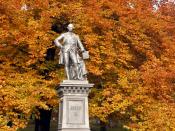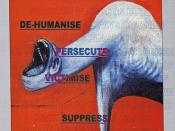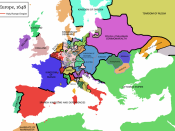Enlightened Despotism was the form of government adopted by absolute monarchs who were influenced by the Enlightenment, mostly in Central and Eastern European powers, during the 18 and 19 centuries. Their reigns were marked by a general modernization of their countries' economical, social and military polices and also by an overall rationalization of the entire ruling system, not only that of the king but the entire governing apparatus.
The main reason for the shift in policy from a form of absolute government to a enlightened absolutism (despotism), which consisted of the modernization of the economy, the military, the legislative system and stretched as far as the acceptance of new ideas about the social contract and even war itself; emerged in Central and Eastern Europe mainly due to the advances made by: France, Spain, Portugal, England and Holland in acquiring colonies in Africa, Asia and especially the Americas. These Western European countries were forced to look for a new link to the Far East for their trading and natural resources after the fall of Constantinople to the Ottomans in 1453.
In order not be overtaken by the oceanic powers; both economically and military, the interior powers of Central and Eastern Europe had to modernize. Therefore monarchs ruled with the intent of improving the lives of their subjects, centralize and improve decision making and increase production in order to strengthen and reinforce their authority and the power of their kingdoms.
The three heavy weights that supported this form of government were Catherine II of Russia, Frederick II of Prussia and Joseph II of the Holy Roman Empire. Although their polices varied somewhat; for example Joseph's high acceptance of Rousseau's social contract was dismissed by Catherine which choose to base her government more on Montesquieu; and so shape the Russian law system; their...


